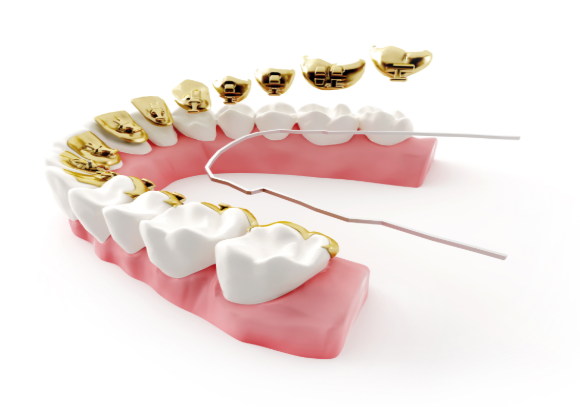
Lingual braces are a popular choice for those seeking a discreet orthodontic treatment since they are placed on the inner surfaces of the teeth. However, wearing them can come with some challenges, especially in the early days. Discomfort caused by irritation, soreness, or speech difficulties is common but can be managed effectively. Here are some essential tips to help you stay comfortable while wearing lingual braces.
Protect Your Mouth from Irritation
One of the most common issues with lingual braces is irritation to the tongue and other soft tissues in your mouth. Since the brackets and wires rest against the back of your teeth, they often rub against your tongue, causing soreness. Using orthodontic wax is one of the best ways to minimize this irritation.
-
How to Use Orthodontic Wax: Roll a small piece of wax into a ball and press it onto any part of the braces causing discomfort. This creates a smooth surface and prevents further irritation. Replace the wax frequently, especially after eating or brushing.
In addition to wax, staying hydrated can help soothe irritation. A dry mouth can worsen discomfort, so drinking water throughout the day and rinsing with an antiseptic mouthwash can help reduce irritation and keep your mouth fresh.
Focus on a Braces-Friendly Diet
What you eat during the adjustment period can significantly impact your comfort. Certain foods can exacerbate soreness or even damage your braces, so choosing your meals carefully is important.
-
Stick to Soft Foods: Opt for foods like mashed potatoes, yogurt, scrambled eggs, pasta, soups, and smoothies. These are easy to chew and gentle on your teeth.
-
Avoid Hard and Sticky Foods: Stay away from crunchy snacks like popcorn or raw carrots, as well as sticky foods like caramel or gum. These can damage your braces or make eating uncomfortable.
By modifying your diet, you’ll reduce the strain on your teeth and braces, which is especially helpful during the initial adjustment period.
Practice Good Oral Hygiene
Lingual braces can make cleaning your teeth more challenging, but maintaining excellent oral hygiene is crucial to avoid discomfort caused by plaque buildup or trapped food particles. A clean mouth not only keeps your teeth and gums healthy but also reduces the risk of developing sores or irritation.
-
Brush Thoroughly: Use a soft-bristled toothbrush and angle it to clean around the brackets and wires. Brush after every meal to remove food particles.
-
Floss Effectively: Use a floss threader or a water flosser to clean between teeth and under the wires.
-
Rinse Regularly: An antiseptic mouthwash can help prevent infections and soothe irritated areas.
By keeping your mouth clean, you’ll reduce the likelihood of complications and make wearing braces much more comfortable.
Be Patient with the Process
Adjusting to lingual braces takes time, and it’s important to remain patient as your mouth adapts to the new hardware. The initial soreness, irritation, or speech challenges you may face are all temporary.
-
Speech Practice: Lingual braces can affect your speech initially, causing a slight lisp or difficulty pronouncing certain words. To overcome this, practice speaking by reading aloud or reciting tongue twisters to help your tongue adapt. Over time, your speech will return to normal.
-
Manage Pain: Over-the-counter pain relievers like ibuprofen or acetaminophen can help alleviate soreness, especially after adjustments. Applying a cold compress to the outside of your cheeks can also provide relief.
Remember, the discomfort you experience now is only temporary. As your mouth adjusts, the irritation and soreness will subside, and you’ll be one step closer to achieving the beautiful, straight smile you’ve always wanted.